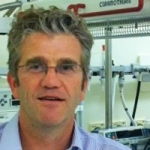 Probiotics & Gut Microbiome Online Course(s) & Continuing Education
Probiotics & Gut Microbiome Online Course(s) & Continuing Education
Access the latest clinical skills and research for Probiotics & Gut Microbiome for NEONATOLOGY professional training. These Probiotics & Gut Microbiome online courses provide practice-changing skills and valuable perspectives from leading global experts. This Probiotics & Gut Microbiome education has been accredited for a variety of CEUs / CERPs and can be accessed on-demand, at your own pace.


Consultant neonatal pediatrician with special interest in neonatal nutrition, probiotics, gut-brain-microbiota axis and long-term neurodevelopment. Dr Jape leads the high-risk neonatal follow-up program for her tertiary referral institute. Currently the chair for the Perinatal Society of Australia and New Zealand long-term outcomes sub-committee. Dr Jape is reviewer for national and international medical journals.
Topic: Gut-Microbiota-Brain Axis in Neonates and Infants - [View Abstract]
Recent advances in next generation sequencing have improved our understanding of the important role of gut microbiota in influencing brain development and function; i.e: 'gut-microbiota-brain' (GMB) axis. This is a bi-directional pathway where brain and gut microbes share detailed communications through immunological pathways, hormones and metabolites. GMB plays a crucial role in early brain development and function and impacts on long-term neurodevelopment and neurobehaviour. Understanding these roles is important to understand effective management and potentially prevention. This presentation will cover important aspects of GMB development, physiology, function and translation in clinical medicine for neonates and infants.

Oral Colostrum Care as an Immunological Intervention in the NICU

Mariana Colmenares Castano was born in Mexico City, and from an early age she was fascinated by animals and nature.She studied medicine at the National University of Mexico (UNAM), and foundher passion as a pediatrician doing her residency at the National Pediatric Institute. When her first child was born she witnessed the lack of knowledge and commitment to breastfeeding within the medical profession, and so she decided to specialize in breastfeeding medicine. She certified as a Lactation Consultant (IBCLC) in 2011.Mariana is a member of the International Lactation Consultant Association, the Academy of Breastfeeding Medicine, and a proud founding member of the National Lactation Consultant Association of Mexico (ACCLAM), where she served on the Board of Directors as Education Coordinator (2014-2019). She is part of board director for the Academy of Breastfeeding Medicine for a 3 year period (2019-2022) and recently named as secretary for the Academy of Breastfeeding Medicine. Mariana is a member of the team for Breastfeeding Country Index BFCI, a project from Yale University and Universidad Iberoamericana. She is consultant for the National Health Institute in Mexico and has collaborated with UNICEF in breastfeeding projects and part of the steering committee for the WHO. She has spoken at national and international conferences, co-published numerous articles and co-authored a chapter for the National Academy of Medicine. At the moment she is a Clinical Fellow in Community Paediatrics in London.
Topic: Breastfeeding The Baby With Congenital Heart Disease - [View Abstract]
Topic: Breastfeeding with Insufficient Glandular Tissue - [View Abstract]
Topic: Clinical Assessment and Management of Jaundice in the Newborn - [View Abstract]
Topic: Oral Colostrum Care as an Immunological Intervention in the NICU - [View Abstract]
Breastmilk must be the food for every human on earth. During the last decades we have been learning much more about the immunoprotective and immunomodulating properties of human milk, specifically colostrum. With advancements in neonatal care, we also have new challenges. As health care professionals it is an ethical responsibility to protect and promote breastfeeding practices for every family. Oral colostrum care is the use of own mother's colostrum in the cheeks and mouth of the baby not for a feeding purpose. It is an opportunity to initiate an immunological intervention in small or sick babies, allowing interaction of immunological properties with the linfoid tissue, promoting and improving microbiome and immune response. The mother and the family can also benefit from this intervention improving and enhancing integral participation and prevalence of breastfeeding in the long term.

View Details / Enroll


Dr Embleton has worked in neonatal medicine for the past 25 years, completing clinical training and a research doctorate in neonatal nutrition in the UK, and a neonatal fellowship in Vancouver, Canada. He has worked as a Consultant Neonatal Pediatrician in Newcastle, UK since 2002, one of the largest UK neonatal units, caring for sick preterm and term born neonates. He leads a broad portfolio of research focused on nutrition and gut health in preterm infants. Areas of work include determining patterns of early gut microbial colonization, and how these may predict the development of necrotizing enterocolitis (NEC) and sepsis. He is a project team member of large neonatal feeding trials recruiting >5000 infants in the UK, as well as coordinating mechanistic studies using microbiomic and metabolomic analyses. He chairs the multi-disciplinary UK Neonatal Nutrition Network (N3) and is a member of the Committee of Nutrition for ESPGHAN.
Topic: Probiotics in Preterm Infants - [View Abstract]
Preterm infants are at increased risks of death and serious morbidity, although outcomes have improved significantly over the last 20 years. However, complications associated with gastrointestinal disorders, especially necrotising enterocolitis (NEC), and sepsis are increasingly important problems as respiratory care has improved. There is over-whelming data to support the use of mother’s own breastmilk, but only a few other interventions have shown important impacts on NEC and sepsis. However, meta-analyses, systematic reviews, large scale randomised controlled trials (RCTs) and observational studies all suggest that the administration of probiotics decrease the prevalence of NEC and sepsis, and improve other measures of gastrointestinal function such as enteral feed tolerance. Probiotics are live bacteria associated with a health benefit. Multiple different species and strains are considered to be ‘probiotics’ but only a few of these have been tested in high quality RCTs in preterm infants. This talk will review aspects of gut microbiota development, the interaction between breast milk nutrients and the microbiome and the role of probiotics. Methodological challenges associated with the interpretation of existing data will be discussed, and practical steps and considerations for the use of probiotics and potential risks will be considered.

View Details / Enroll











